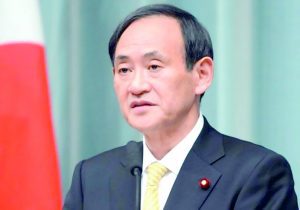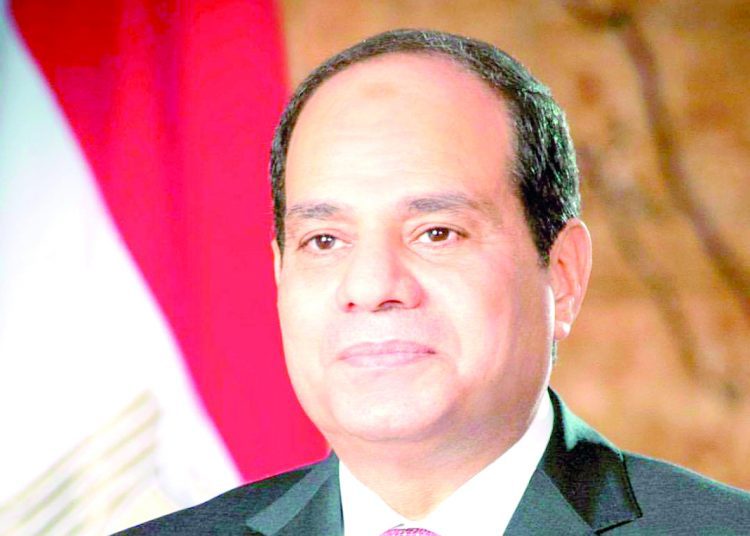
The bilateral relationship between Japan and Egypt has already grown very firm and is growing further thanks to the efforts made by both sides, but we still see huge potential to excavate in our bilateral relations.
A good example for such continuum of bilateral co-operation can be found in education sector. Education is one of the important pillars of Japan-Egypt co-operation and the existing co-operation is already covering a wide range of education, from preschool to higher education. Among this is E-JUST (Egypt-Japan University of Science and Technology), which started operation 10 years ago and has kept growing. Actually, E-JUST started to accept foreign students from Africa and the Middle East last year and is now growing as a “Centre of Excellence” of practical technology education in the region.
Also in the field of primary education in Egypt, the promotion of Japanese-style education is in a big move. Currently a total of 43 Egypt Japan Schools (EJS) are being run in Egypt and provide education aimed at the development of well-balanced children, not only in their intelligence but also in their minds and bodies. The co-operation is expanding, as a new approach has started last year even under difficult circumstances posed by the Covid-19 pandemic. Now, 11 former principals of Japanese primary schools invited by the Egyptian government are supervising the operations in EJS.
Nowadays, the potential for further co-operation between Japan and Egypt does not stop with their bilateral issues, but covers a wider spectrum of interests. The potential is obvious when we see the unique and special position of Egypt as a major power located at the geopolitical centre connecting the Middle East, Africa and Europe. Egypt’s stability and development, as well as its constructive role, are essential to the peace and stability of those regions. Therefore, Egypt is becoming more important to Japan, which promotes the “Free and Open Indo-Pacific (FOIP)” to maintain and strengthen the world’s maritime order based on international law, and to realise prosperity through enhanced connectivity.
Based on these thoughts, Japan has co-operated in the renovation and marketing of the Suez Canal, which is a key point of international shipping, and has supported the strengthening of connectivity with the Sinai Peninsula through such projects on “Peace Bridge” and tunnels that cross the canal. Recently, Japan also has co-operated with Egypt in the development of renewable energy such as wind and solar, and just a week ago, on February 15, Japan signed agreement for a large-scale new loan (development policy loan for electricity sector refrom) of 25 billion yen US$240 million). Through past and current collaborations, Japan has become a partner for Egypt to achieve further growth as a regional logistics and energy hub.
As stated before, Japan is collaborating with Egypt in enhancing its regional connectivity in terms of human resources through continuous collaborations in the field of education, which also corresponds to Japan’s vison of “FOIP” that aims to secure peace and prosperity of the world through enhanced connectivity.
Another evidence that co-operation between Japan and Egypt extends beyond the interests of both countries is the co-operation for peace and prosperity in Africa. Based on its success at the 7th Tokyo International Conference on African Development (TICAD7) in 2019, which President Abdel Fattah El Sisi co-chaired together with the Japanese Prime Minister, Japan started its contribution as a “strategic partner” to one of important initiatives by Egypt towards peace and prosperity in Africa: Aswan Forum for Sustainable Peace and Development. Through the Centre for Conflict Resolution, Peacekeeping and Peacebuilding (CCCPA), Japan is co-operating with Egypt in the regional agenda such as women and peace, measures against violent extremism, and the capacity building of peacekeeping and peacebuilding personnel.
Co-operation under Corona
Japan views the current Covid-19 crisis as more than a health crisis. It is the crisis in “human security,” posing imminent threats to livelihood and dignity of all the human beings, especially those who are vulnerable in the society. Therefore, Japan is taking the lead in promoting measures to enhance “human security” that would be “leaving no one’s health behind,” and promoting “universal health coverage (UHC),” which is a mechanism that embodies the notion of “leaving no one’s health behind.”
With Egypt, Japan is supporting Egypt’s efforts to improving the management capacity and quality of public hospitals under the Universal Insurance (UHI) Act enacted in July 2018.In addition, Japan signed a grant aid of 1 billion yen (about 9.5 million dollars) in October last year for the procurement of medical equipment such as CT scanners for the use at Egyptian hospitals. Also in November last year, a bronchoscope (manufactured by PENTAX) and an ultrasonic diagnostic imaging device (manufactured by Hitachi) were provided to Ain Shams University. Same sort of assistance are expected to be delivered to Suez Canal University and Fayoum University.
Facing the rise of the corona crisis, Japan also started its collaboration with relevant international organisations. Since May last year, Japan has decided to support more than $ 6 million through international organisations to strengthen Egypt’s health care system and economic counter-measures. In January this year, we also decided to provide health service and food assistance to people most vulnerable to the spread of the new coronavirus, especially children and women, in northern Sinai and the immigrant and refugee communities.
The aforementioned development policy loan in the electricity sector is also expected to ease financial pressure on Egyptian government tackling the Corona disaster.
In 2019, Japan was the second largest contributor to WHO in the world. Japan announced that it would contribute more than $130 million as a co-sponsor to COVAX, an international framework for jointly purchasing and equitably distributing vaccines. Through this, Japan hopes stable vaccine procurement in each country, including Egypt, will be facilitated.
To conclude, we would like to introduce the words by His Majesty the Emperor of Japan, the symbol of Japan and the unity of the Japanese people, which was delivered on the occasion of the New Year’s Day of this year. In this, His Majesty the Emperor tries to convey the message to emphasise the importance of mutual considerations and supports among people in the face of difficulties posed by the Covid-19 pandemic.






Discussion about this post